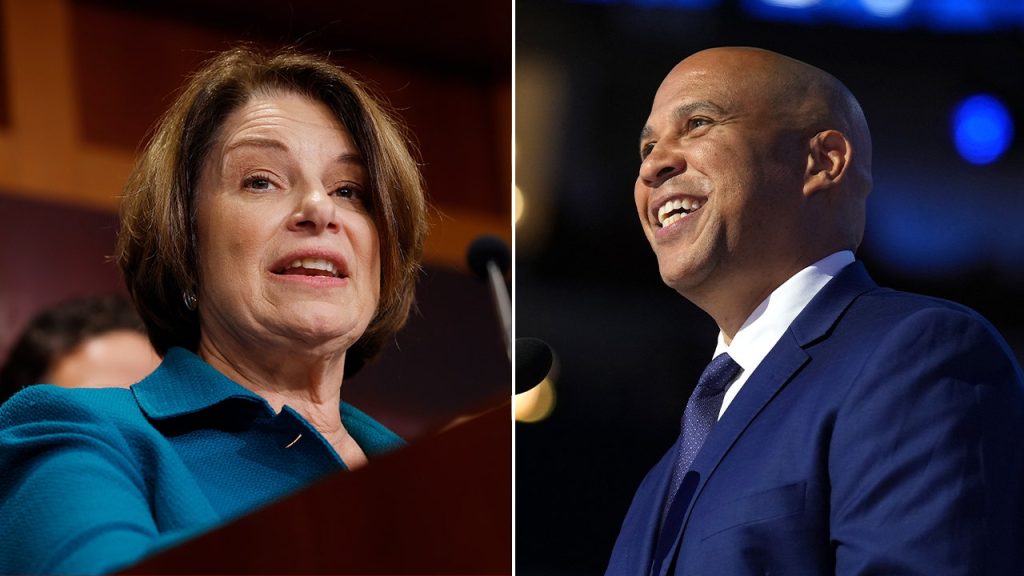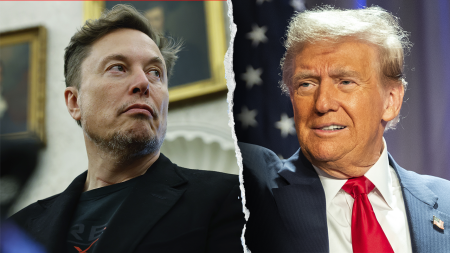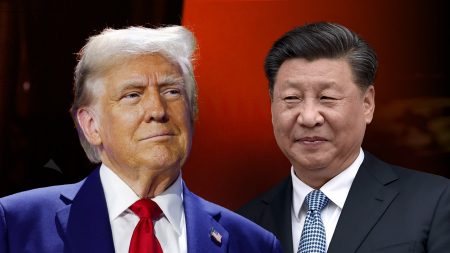Senate Democrats held a closed-door election to name their top leadership posts for the next two years, re-electing Chuck Schumer as Democratic leader and chair of the conference. Schumer expressed gratitude for being chosen to lead Senate Democrats during this critical time for the country. Dick Durbin will remain in the party’s No. 2 position as Democratic minority whip, while Debbie Stabenow’s departure left the No. 3 spot open. Amy Klobuchar was selected to chair the steering and policy committee, taking on the No. 3 position, and Cory Booker was elevated to chair the strategic communications committee.
Other nominations included Elizabeth Warren as vice chair of the conference, Mark Warner as vice chair of the conference, Bernie Sanders as chair of outreach, and Tammy Baldwin as senate Democratic conference secretary. Senate Republicans also recently held their own leadership election, choosing John Thune to serve as Senate majority leader when they have the majority in the chamber next year. The Democratic leadership shake-up comes as the party prepares to navigate a number of crucial issues and priorities in the upcoming Congress, including efforts to support America’s working class.
Schumer emphasized the importance of the work ahead, both in the Senate and for the country, as the Democratic caucus continues to fight for the best interests of America’s working class. The selection of new leadership positions reflects a changing of the guard within the Democratic ranks, with Klobuchar taking over the No. 3 spot previously held by Stabenow. The Senate Democrats’ strategic communications committee will now be chaired by Booker, signaling a shift in leadership roles as the party prepares to address key policy and communication challenges in the coming years.
The upcoming Congress will see Warren, Warner, Sanders, and Baldwin stepping into key leadership positions within the Senate Democratic conference, reflecting the party’s commitment to diversity and varied perspectives in decision-making processes. The recent elections for leadership positions within the Senate indicate a reorganization of priorities and focus areas for both the Democratic and Republican parties as they gear up for the next legislative session. Schumer’s re-election as Democratic leader affirms his colleagues’ confidence in his leadership abilities and vision for the party’s future direction.
As the countdown to the new Congress begins, both parties are making strategic decisions about leadership roles and priorities, with an eye toward advancing their respective policy agendas and addressing the challenges facing the nation. The selection of new leaders within the Senate Democratic caucus signals a desire for fresh perspectives and approaches to addressing the critical issues facing the country. The leadership shake-up within the Senate comes at a pivotal moment, as lawmakers on both sides of the aisle work to address pressing economic, social, and political challenges in the months and years ahead.










